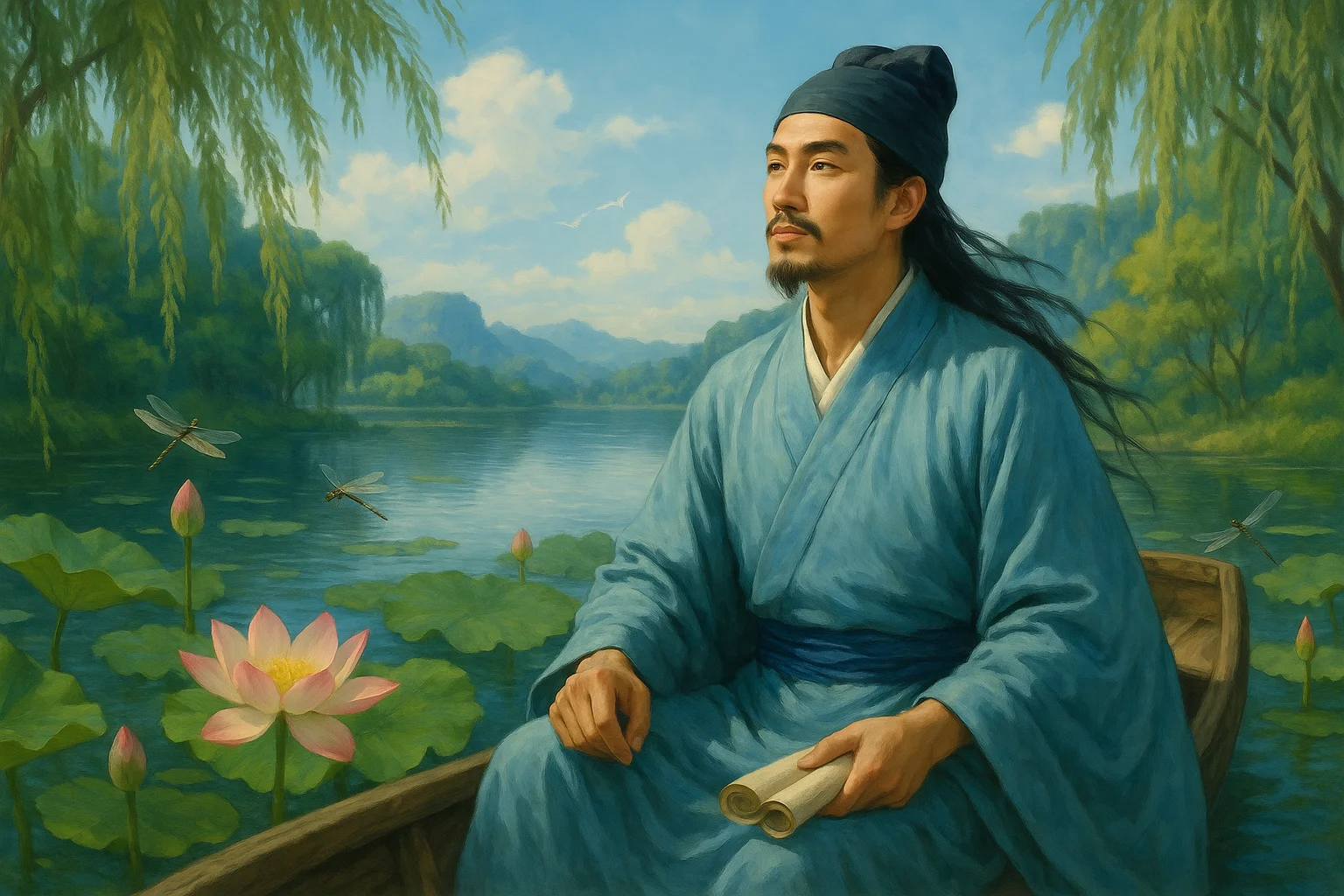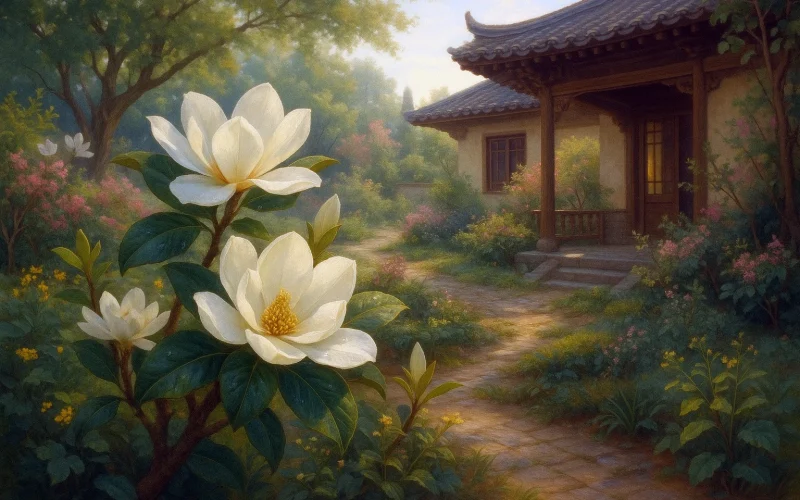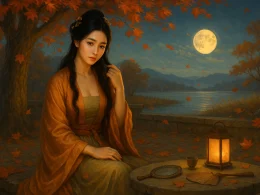The warm wind parts dawn's jade moss with gentle grace,
The blooms still bow with jade-white fair face.
Not easily does she her pearly smile display,
Yet how can her sweet scent the world's ends sway?
Original Poem
「白兰花」
杨万里
熏风破晓碧莲苔,花意犹低白玉颜。
一粲不曾容易发,清香何自遍人间。
Interpretation
"The White Orchid" is one of Yang Wanli's small poems depicting natural scenery during the Southern Song Dynasty. Yang, known for his love of travel and nature, often infused aesthetic reflections into everyday scenes. This poem was likely inspired by a white orchid encountered during leisure or travel. In the Song Dynasty, white orchids were regarded as elegant flowers—less opulent than peonies and less flamboyant than peaches or plums—renowned for their purity and subtle grace. Through the flower’s delicate form and fragrance, the poet reflects his own pursuit of a tranquil, pure, and unassuming attitude toward life.
First Couplet: "熏风破晓碧莲苔,花意犹低白玉颜。"
Xūn fēng pò xiǎo bì lián tái, huā yì yóu dī báiyù yán.
The southern breeze at dawn stirs emerald moss;
The flower’s spirit still bows its jade-white face.
The opening sets the scene: a "southern breeze" (熏风 xūn fēng) and "emerald moss" (碧莲苔 bì lián tái) create a fresh atmosphere, accentuating the orchid’s quiet beauty. "Jade-white face" (白玉颜 báiyù yán) highlights its pristine elegance, while "still bows" (犹低 yóu dī) conveys humility and restraint.
Second Couplet: "一粲不曾容易发,清香何自遍人间。"
Yī càn bù céng róngyì fā, qīngxiāng hé zì biàn rénjiān.
Not once does it readily bloom into a smile,
Yet how has its light fragrance pervaded the world?
Here, "smile" (粲 càn) metaphorically depicts blooming, emphasizing the orchid’s rarity and reserve. Despite its modest appearance, its fragrance spreads widely—suggesting that true virtue lies not in outward display but in inner influence that endures.
Holistic Appreciation
With lucid and natural brushstrokes, this poem captures the flower’s form and spirit. In just over twenty characters, it sketches a scene of morning breeze brushing moss and a white flower gently unfolding. Yang Wanli imbues natural elements with human qualities: the orchid’s "bowed head" reflects humility, while its unshowy yet pervasive fragrance symbolizes literary integrity and moral independence. The poem blends pictorial beauty and philosophy: the orchid wins hearts not with brilliance but with fragrance, embodying the natural beauty and human virtue Yang admired.
Artistic Merits
- Scene enhancing emotion, elegance transcending vulgarity: Background elements like "breeze" and "moss" offset the orchid’s purity, demonstrating scene-object-emotion interplay.
- Personification enriching character: "Still bows" and "not readily bloom" give the orchid shyness, deepening its humanistic resonance.
- Contrast and subtle emphasis: Rather than highlighting full bloom, it stresses reluctance to flower; instead of vibrant color, it prizes "fragrance pervading the world," creating nuanced contrast.
- Concise language with profound meaning: Four lines convey form, fragrance, and ideal character, revealing Yang’s art of revealing greatness in smallness.
Insights
The white orchid’s beauty lies in its restraint and fragrance. It teaches that truly valuable character and virtue need not be ostentatious—they can quietly nurture hearts and subtly influence others. Through the flower, Yang expresses his aspiration for a life of tranquility, purity, and integrity. For modern readers, this spirit of "fragrance pervading the world" reminds us to maintain authenticity and composure amid noise, influencing the world with understated strength.
About the Poet

Yang Wanli (杨万里 1127 - 1206), a native of Jishui in Jiangxi, was a renowned poet of the Southern Song Dynasty, celebrated as one of the "Four Great Masters of the Restoration" alongside Lu You, Fan Chengda, and You Mao. He attained the jinshi degree in 1154 and rose to the position of Academician of the Baomo Pavilion. Breaking free from the constraints of the Jiangxi School of Poetry, he pioneered the lively and natural "Chengzhai Style," advocating for learning from nature and employing plain yet profound language. His poetry, often drawing inspiration from everyday life, profoundly influenced later schools of lyrical expression, particularly the Xingling (Spirit and Sensibility) School.












